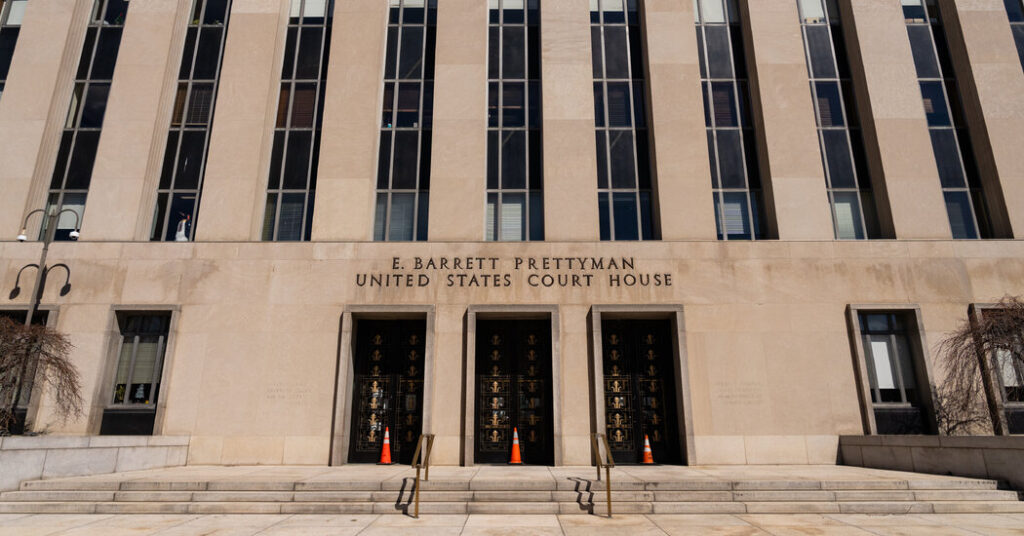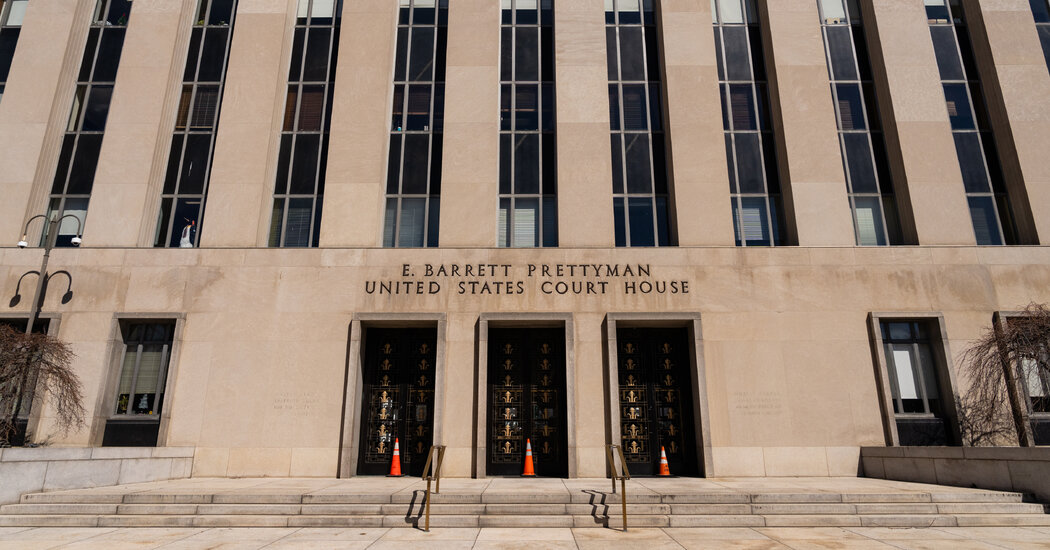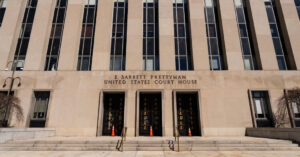Meta’s Antitrust Trial Begins as FTC Argues Company Built Social Media Monopoly
Mr. Zuckerberg went to court on Monday in a trial focused on his social media company’s acquisitions of Instagram and WhatsApp. The case could reshape Meta’s business.


Mr. Zuckerberg went to court on Monday in a trial focused on his social media company’s acquisitions of Instagram and WhatsApp. The case could reshape Meta’s business.
Mark Zuckerberg, the chief executive of Meta, took the witness stand on Monday to defend his social media empire in a landmark antitrust trial that could dismantle a company that has transformed how the world connects online.
In a packed courthouse in the U.S. District Court for the District of Columbia, lawyers for the Federal Trade Commission presented Mr. Zuckerberg with a binder full of dated emails and internal communications about his acquisition strategy, pushing him to defend his words. The government has contended that Meta illegally cemented a social media monopoly by acquiring Instagram and WhatsApp when they were tiny start-ups, combining them into the same company, which was then known as Facebook.
“I view this all as relatively early thinking,” Mr. Zuckerberg said about an email he wrote in February 2012 in which he discussed keeping Instagram going but not adding more features. “In practice, we ended up investing a ton after we acquired it.”
Mr. Zuckerberg, who is expected to resume testimony on Tuesday, was the first witness in the trial, Federal Trade Commission v. Meta Platforms. Earlier in the day, the F.T.C. opened its first antitrust trial under the Trump administration by arguing that Meta’s acquisitions were part of a “buy-or-bury strategy.” Ultimately, the purchases coalesced Meta’s power, depriving consumers of other social-networking options and edging out competition, the government said.
Meta’s lawyers denied the allegations in opening statements, countering that the company faces plenty of competition from TikTok and other social media platforms. The F.T.C. approved the acquisitions of Instagram and WhatsApp more than a decade ago, and trying to unwind the mergers would set a dangerous precedent, the lawyers added.
The trial poses the most consequential threat to the business empire of Mr. Zuckerberg, the company’s co-founder. If the government succeeds, the F.T.C. is likely to ask Meta to divest Instagram and WhatsApp, potentially shifting the way that Silicon Valley does business and altering a long pattern in which big tech companies have snapped up younger rivals.






